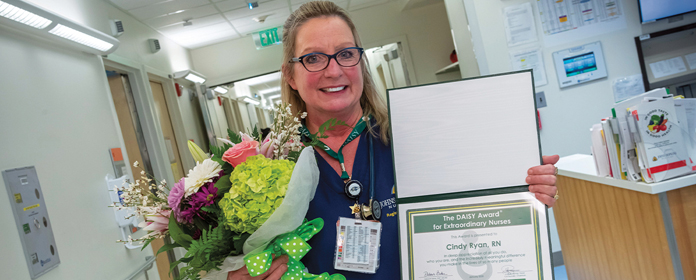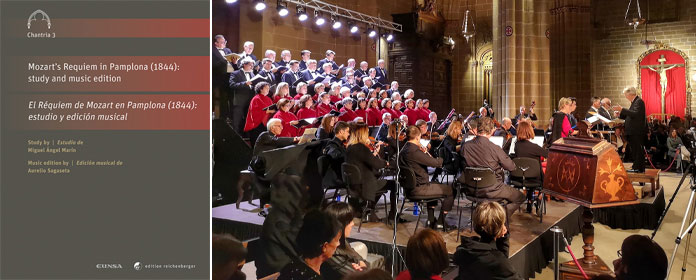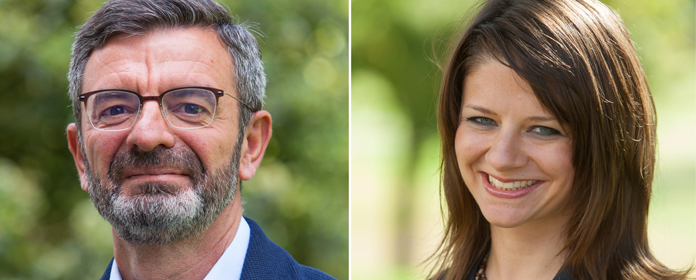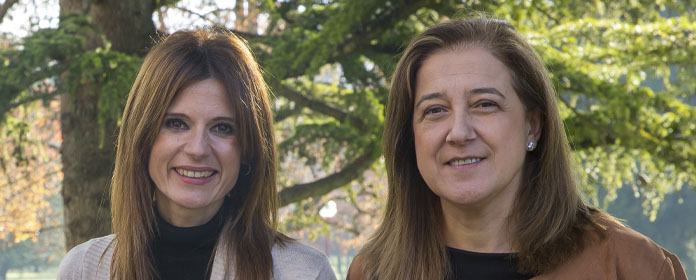A researcher of the University of Navarra recovers the music of the first preserved Spanish "opera" by Calderón and premieres it in Vienna.
Albert Recasens, from the ICS, has coordinated the research from the materials preserved at Harvard University and has brought the work to the stage with his early music ensemble La Grande Chapelle.
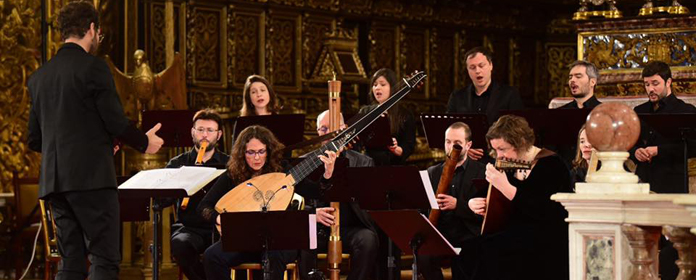
PHOTO: Courtesy
Albert Recasens, researcher of the Institute for Culture and Society (ICS) of the University of Navarra, has recovered the Fortunes of Andromeda and Perseus, the first Spanish "opera", with text by Calderón de la Barca (1600-1681). It is the first great Spanish lyric work preserved and until now had not been performed or recorded. It was premiered on January 25 at the Konzerthaus in Vienna at framework of the prestigious Festival für Alte Musik "Resonanzen", with Recasens conducting his ensemble La Grande Chapelle.
According to researcher, musicologist and musical director , "in 1653 the Coliseo del Buen Retiro in Madrid hosted the performance of this novel comedy with music intended to celebrate the regained health of the young Queen Mariana of Austria (1634-1696), who had recently arrived at the Spanish court. The music was probably composed by Juan Hidalgo (1614-1685)".
Recasens points out that for more than three decades, "Calderón collaborated with Hidalgo and both contributed to the creation of a distinctive genre of musical theater that maintained its own conventions, different from those prevailing in other European countries: music alternated with words to represent gods or mortals respectively". He adds that the performance also featured "the splendid sets designed by the Florentine engineer Baccio del Bianco".
Comedy based on the myth of Perseus.The comedy is based on the myth of Perseus, the son of Danae and Jupiter, who killed Medusa to prove his courage and freed Andromeda from the sea monster. "The music of Fortunas contains all the typical aspects of Spanish theatrical music of the time (coplas, cuatros, etc.), but adds experimental formulas such as recitative and seeks a more organic relationship with the dramatic text," Recasens notes.
The expert, who is a member of the ICS' project 'Creativity and Cultural HeritageThe expert, who is part of the ICS, has coordinated the research from the materials preserved in the Hougthon Library at Harvard University (USA). Leading his ensemble La Grande Chapelle and soloists of the stature of Monica Piccinini, Eugenia Boix, Gabriel Díaz Cuesta or Elías Benito, he has recovered this work in concert version at partnership with director stage director Juan Sanz. The concert, which received a standing ovation from the audience, was recorded by the Österreichischer Rundfunk (ORF), the Austrian radio and television station, which will broadcast it in the coming months.

